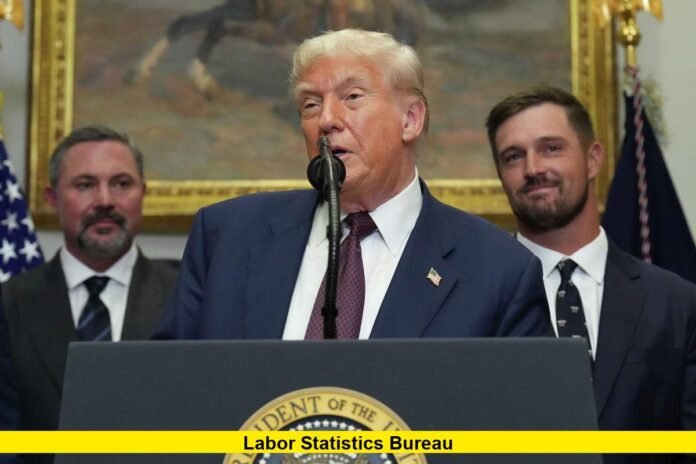The labor statistics bureau made headlines this week after President Donald Trump fired its chief, Erika McEntarfer, just hours after a surprisingly weak jobs report hit the markets. McEntarfer, a Senate-confirmed appointee who took the helm in January 2024, was abruptly dismissed on Friday. Trump, on his social media, accused the bureau of producing “phony numbers” and claimed the statistics were manipulated for political gain—allegations that economists and previous bureau heads have firmly disputed.
In July, the bureau reported an addition of only 73,000 jobs—well below expectations—and revised May and June’s employment numbers downward by a combined 258,000 positions. This marks the sharpest two-month cut outside of the pandemic era. The unemployment rate ticked up to 4.2%, raising alarms about the economy’s health amid ongoing tariffs and tightening labor conditions.
Key Facts from the Labor Statistics Bureau Shakeup
- Commissioner Fired: Erika McEntarfer let go by direct order from President Trump due to “rigged” numbers claims.
- Acting Leadership: Deputy Commissioner William Wiatrowski now leads the agency until a new chief is selected.
- Sharp Revisions: May and June job gains revised down to 19,000 and 14,000, respectively, for a total downward shift of 258,000 jobs.
- Economists’ Response: Experts widely rejected the accusation of tampering, explaining that large revisions come from delayed or revised business survey responses—not political interference.
- Political Backlash: Some Republican senators expressed concern, declaring that firing a statistician over data accuracy undermines trust in critical government reports.
Independence of the Labor Statistics Bureau
The labor statistics bureau is structured to insulate its reporting from political pressure. McEntarfer, with experience serving under both Democratic and Republican administrations, had broad bipartisan support. Previous commissioners, including those appointed by Trump, described any notion of political meddling as both “baseless” and contrary to how employment data is compiled in practice. The scale of the recent revisions—driven primarily by new data from state and local government education jobs—was attributed to routine, transparent updating as more information is received.
Market Impact and Reaction
The unexpectedly poor jobs report and downward revisions spooked stock markets and prompted investors to anticipate a Federal Reserve rate cut as soon as September. Economists warn that such dramatic actions against independent officials risk eroding confidence in the accuracy and impartiality of vital economic indicators.
Public and market scrutiny remain high, with debate ongoing about policy moves and the stability of economic-data reporting.
The labor statistics bureau remains in the national spotlight as the search begins for new leadership and trust in the reporting process is put to the test. What do you think about the president’s decision? Join the conversation below and share your perspective on these unprecedented developments.
